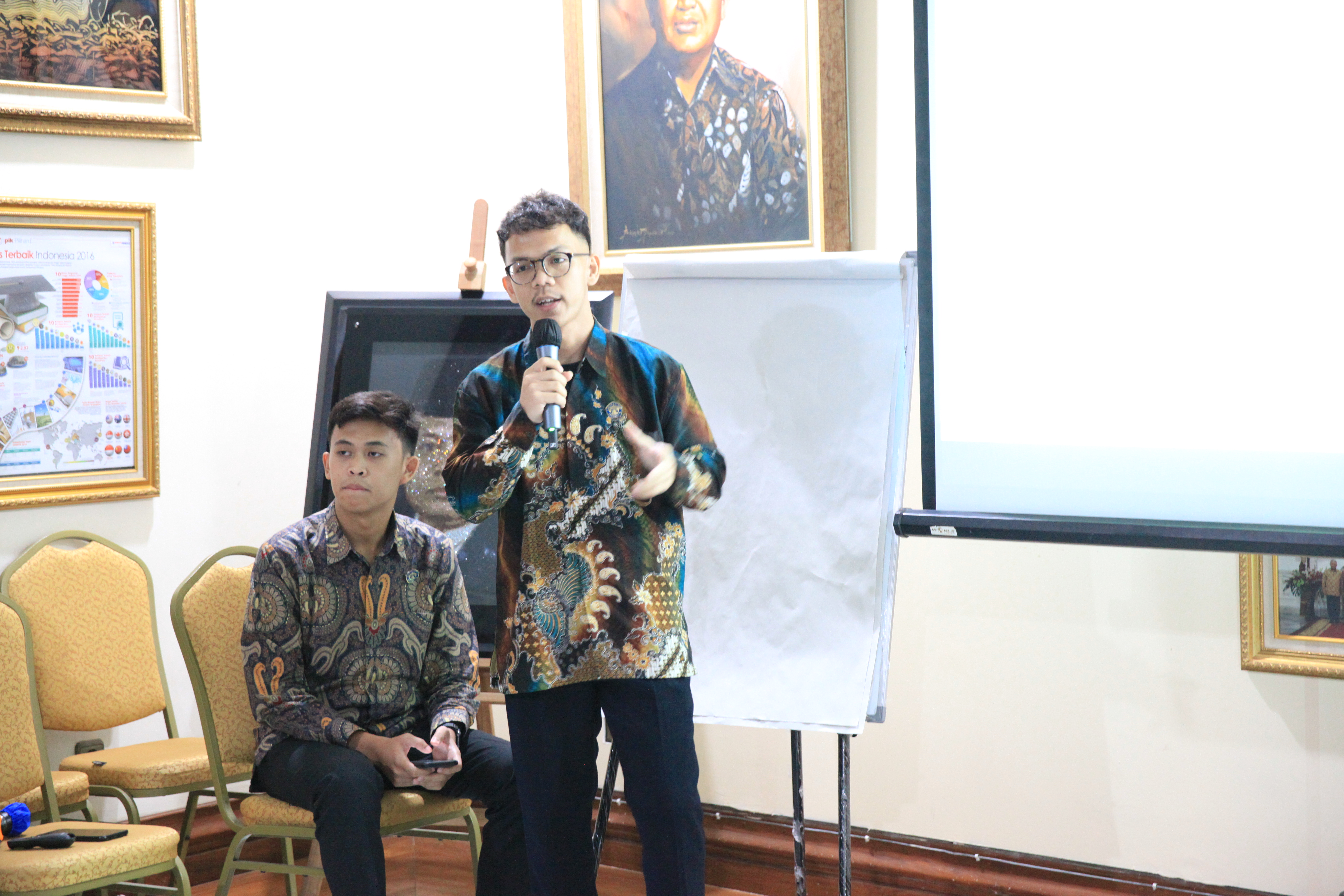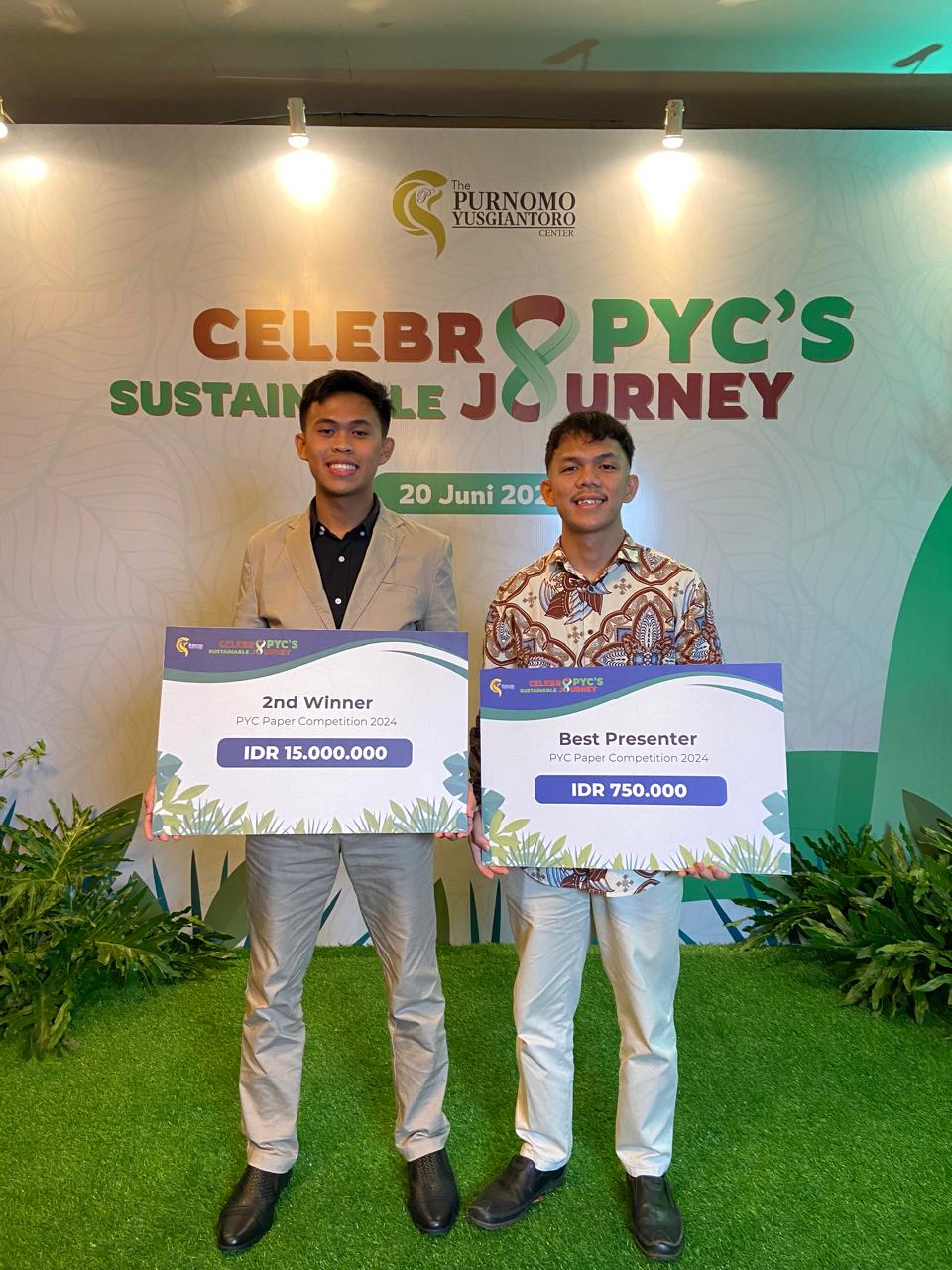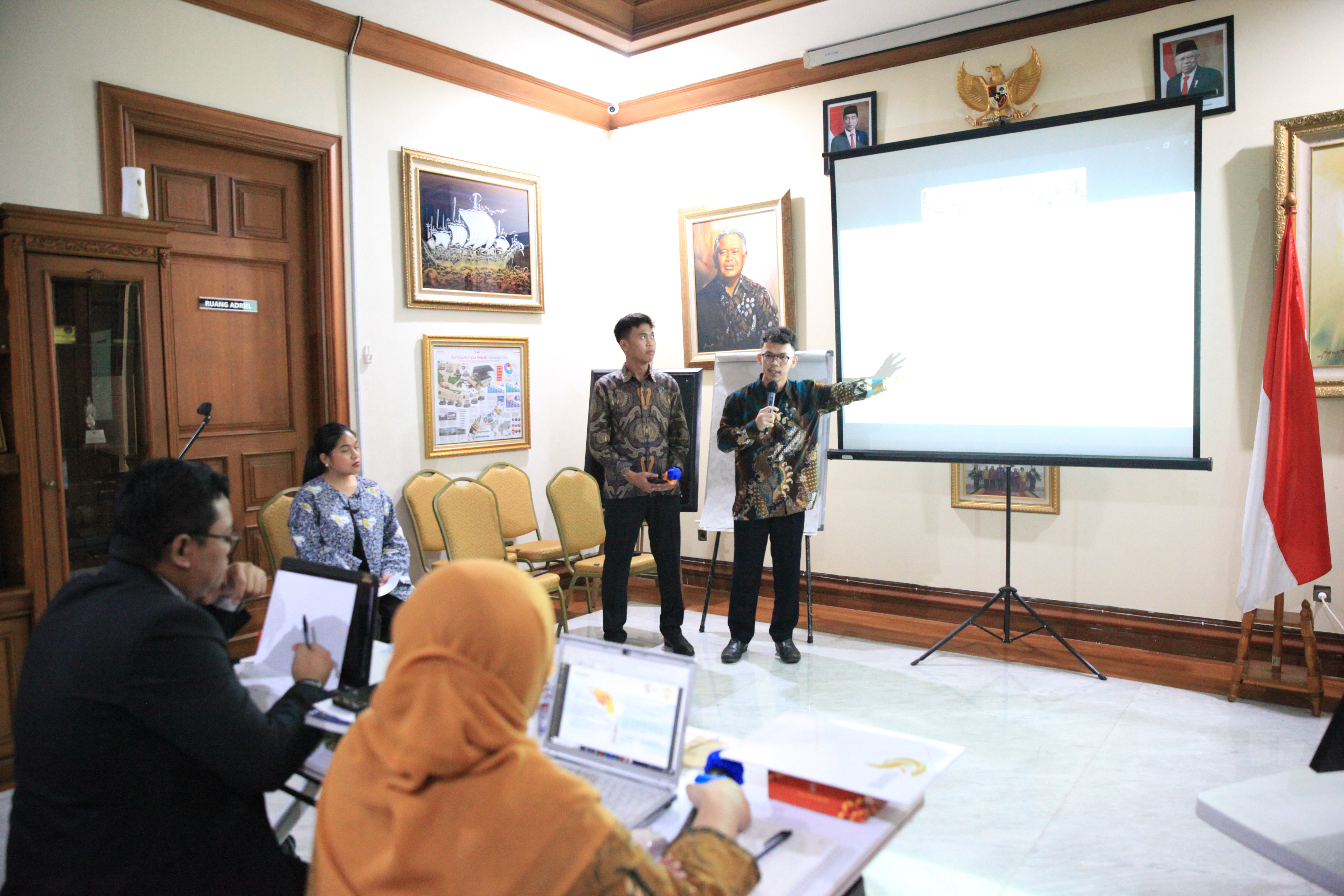Yusuf Yudhoyuno and Muhammad Faerel Rizky A., two students from the Department of Chemical Engineering (DTK), Faculty of Engineering, Universitas Indonesia (FTUI), class of 2023, successfully won 2nd Winner and Best Presenter awards at the Purnomo Yusgiantoro Center Paper Competition 2024. They, part of the Kareem Global team, presented a scientific paper titled “Alternative Flare Gas Utilization: Sustainable and Cost-efficient Method Through Direct Oxidation and Metal-catalysed Carbonylation.”
According to a World Bank report, flaring activities in Indonesia in 2022 released 163.15 Million Standard Cubic Feet per Day (MMSCFD) of greenhouse gases. This exhaust gas flaring significantly contributes to increased carbon emissions in the atmosphere, adversely impacting climate change and air quality. To achieve Net-Zero Emissions by 2050, the International Energy Agency (2023) states that flaring activities must be reduced by 95% by 2030.
“With these challenges, we introduced a new way to utilize exhaust gas. We used a method that can convert methane into methanol with high efficiency (90%) at low temperatures. This methanol is then processed into acetic acid, which has high market value, with the help of an iridium catalyst,” explained Faerel.
Acetic acid has high market value because it is widely used in various industries, such as plastic production, synthetic fibres, solvents, and other chemicals. In Indonesia, acetic acid is also used in the textile and food industries, as well as a raw material in the production of vinyl acetate monomer (VAM), which is crucial for making adhesives, paints, and various other products. Utilizing acetic acid derived from exhaust gas not only helps reduce carbon emissions but also provides economic benefits by supplying essential raw materials for various industries in Indonesia.
“We conducted research with process simulations, economic feasibility analysis, and exhaust gas reduction projections. This system was tested using data from the Cinta Field managed by Pertamina Hulu Energi OSES. The results showed that this system could produce large amounts of acetic acid, provide significant economic benefits, and significantly reduce carbon emissions from the oil field,” he added.
The Dean of FTUI, Prof. Dr. Ir. Heri Hermansyah, S.T., M.Eng., IPU, stated, “Exhaust gas from the oil and gas industry in Indonesia is one of the main sources of carbon emissions, exacerbating global climate change issues. Therefore, innovations that can efficiently reduce or utilize exhaust gas are crucial for environmental sustainability and public health. The innovation from Yusuf and Faerel is expected to be an effective solution to these challenges while also providing significant economic benefits.”
***
Public Communications Office
Faculty of Engineering, Universitas Indonesia




